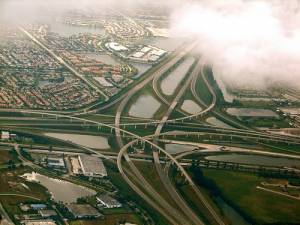 In a so-crazy-it-just-might-work attempt to combat global warming, California legislators are trying to get people to drive less by building more—and more intelligently.
In a so-crazy-it-just-might-work attempt to combat global warming, California legislators are trying to get people to drive less by building more—and more intelligently.
Acknowledging that passenger cars account for 30% of the state’s greenhouse gas emissions, lawmakers want to make it easier for people to avoid using their cars by encouraging denser development.
A bill now making its way through the legislature would dole out state transportation funds—about $15 billion—only to those communities that pursued “smart-growth” development plans, such as filling in commercial strips and building new homes around existing roads and rail lines. “We know people are going to drive. We want them in their cars for less time,” said the bill’s author, state Senator Darrell Steinberg (D-Sacramento). It’s a pragmatic approcah to a persistent problem: Instead of preventing new development—a move that business interests say stunts economic growth—the measure would encourage cities to build responsibly.
Conventional wisdom says that if they want Californians to stop driving, politicians will have to pry the steering wheels from their cold, dead hands. But if they do this right, residents of the Golden State can have their cake and eat it too. Development isn’t necessarily a bad thing, especially if it means that more people can work in the communities where they live. The higher gas prices climb, the more crucial such choices will become.
Photo used under a Creative Commons license from the pink sip.















